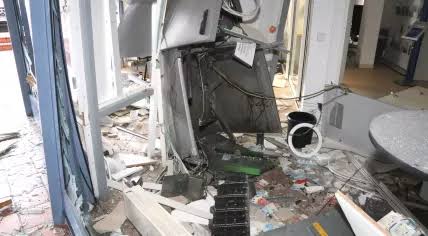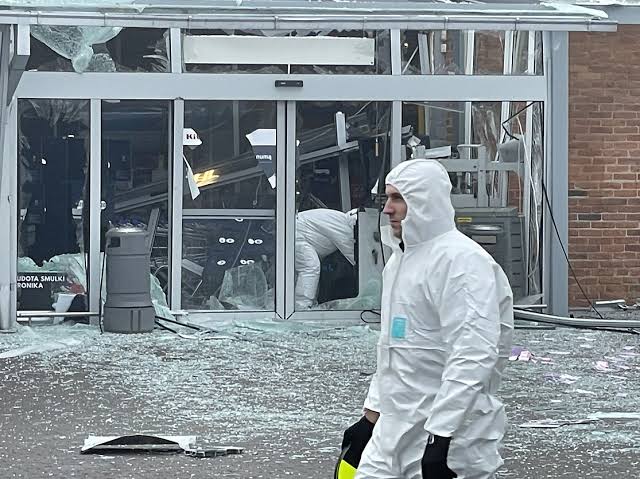Cash-machine explosions are a contentious issue in the German town of Ratingen. Last month, two exploded at dawn at Santander and Deutsche Bank locations near to the main plaza of the Duesseldorf district, which are located across the street from one another.
Due to fears that they would be raided, inhabitants of the flats above Santander attempted to have the machines removed through lawsuit a year ago, but were unsuccessful. This action may have been seen in other nations as prophetic in hindsight.
However, more than one ATM is destroyed every day by thieves in Germany. According to the Interior Ministry, attacks have increased by more than 40% since 2019, and analysts attribute the rise to two variables.
Germany, which prefers cash over bank cards, has 53,000 ATMs, a disproportionately high number. Germany is also the largest economy in Europe. A vast network of motorways, or Autobahns, is another asset of the nation, many of which have no implementation speed limits. Ratingen is only 70 km (40 miles) from the Dutch border and investigators believe that Dutch gangs are mostly responsible for the attacks, which send glass flying, forcing building facades to shatter, and cause money cartridges to split open.

In 2021, when 392 ATM explosions were reported; this number increased to 496 in 2022, thieves got away with roughly 20 million euros ($22.1 million). 47 cases have been reported by the police in North Rhine-Westphalia so far in 2023, which is more than last year’s rate in the state where Ratingen is located and has been the target of the attacks.
According to Dutch police, security measures like adhesive that renders cash blocks inside of ATMs useless are helping to reduce the frequency of ATM attacks in the Netherlands. Therefore, German police estimate that between 70% and 80% of assaults in Germany since 2018 have been committed by Dutch cash machine robbers who have crossed the border.
Approximately 500 individuals, operating in mutating groups as new members take the place of those who are apprehended, according to Dutch police, are thought to be responsible. Six Dutch individuals were accused of instigating explosives, theft, and property destruction this week by Frankfurt prosecutors.
Due to the discovery of a tiny car that sped away from the scene and onto an adjacent Autobahn, Ratingen police are now looking into a potential Dutch link in last month’s double raid. Santander’s façade remained boarded up for over a month following the attacks. Customers were requested to have patience while the ATMs were out of commission while they were being repaired, and the Deutsche Bank sign was still broken.

Germans, on average, withdrew more than 6,600 euros yearly, primarily from cash machines, according to a survey by the Bundesbank that revealed that nearly 60% of everyday transactions are made in cash. In an effort to stem the tide of cash machine crime, Germany is also collaborating with authorities in Belgium, France, and Europol. Requests for comments were not answered by the joint administrations. German Interior Minister Nancy Faeser asked banks this week to increase safety precautions for ATMs after seeing that ATM raids put lives in peril.
Although Santander and Deutsche both stated that they prioritized safety and were constantly enhancing ATM security, banks inside of Germany are hesitant to take broad-based safeguards and instead advocate a case-by-case approach depending on each specific security risk. Different areas have different dangers, according to a representative of Deutsche Kreditwirtschaft, a lobbying coalition representing the country’s financial institutions. A universally applicable solution is not yet available.
- Misleading Video Alters Prime Minister Shehbaz’s Speech Targeting Political Rival, Not His Party - 21/04/2024
- ATC Grants Three-Day Remand for Suspects in Ichhra Bazaar Harassment Case - 19/03/2024
- Pakistan, India, and Bangladesh Lead World in Severe Smog Crisis, Exceeding WHO Guidelines - 19/03/2024


